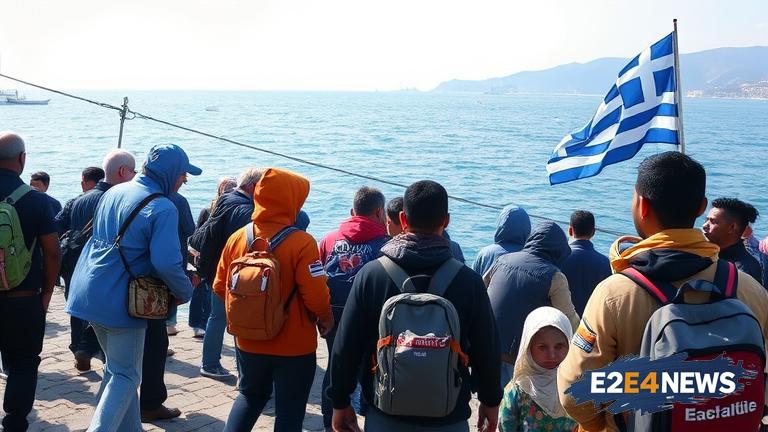Greece has announced that it will be suspending asylum processing for the time being, citing an overwhelming surge in migrant arrivals from the Mediterranean. This move has raised concerns among human rights groups and refugee organizations, who fear for the welfare and safety of those seeking asylum. The decision comes as Greece struggles to cope with the increasing number of migrants arriving on its shores, with many attempting to cross from neighboring countries such as Turkey. The Greek government has stated that the suspension is necessary to allow for the reorganization of its asylum system, which has been overwhelmed by the sheer volume of applications. However, critics argue that this move will only exacerbate the existing crisis, leaving thousands of migrants in limbo and without access to essential services. The Mediterranean migrant crisis has been ongoing for several years, with many countries in the region struggling to manage the influx of refugees and migrants. Greece, in particular, has been at the forefront of the crisis, with many migrants attempting to reach the country’s islands from Turkey. The suspension of asylum processing has sparked fears of a humanitarian crisis, with many migrants forced to live in squalid conditions and without access to basic necessities such as food, water, and shelter. Human rights groups have condemned the move, arguing that it is inhumane and violates international law. The Greek government has defended its decision, stating that it is necessary to ensure the integrity of the asylum system and to prevent abuse. However, many experts argue that the suspension will only serve to drive migrants further underground, making them more vulnerable to exploitation and abuse. The European Union has also been criticized for its response to the crisis, with many arguing that it has failed to provide adequate support to countries such as Greece. The migrant crisis has also had a significant impact on local communities, with many residents expressing concerns over the strain on resources and infrastructure. As the situation continues to unfold, it remains to be seen how the Greek government will address the crisis and whether the suspension of asylum processing will have the desired effect. In the meantime, thousands of migrants remain in limbo, waiting for a resolution to their situation. The international community has been called upon to provide support and assistance to those affected by the crisis, and to work towards finding a long-term solution to the Mediterranean migrant crisis. The Greek government has also been urged to reconsider its decision and to work towards finding alternative solutions that prioritize the welfare and safety of migrants. Ultimately, the suspension of asylum processing in Greece has highlighted the need for a more comprehensive and coordinated approach to addressing the migrant crisis, one that prioritizes the human rights and dignity of all individuals involved.
